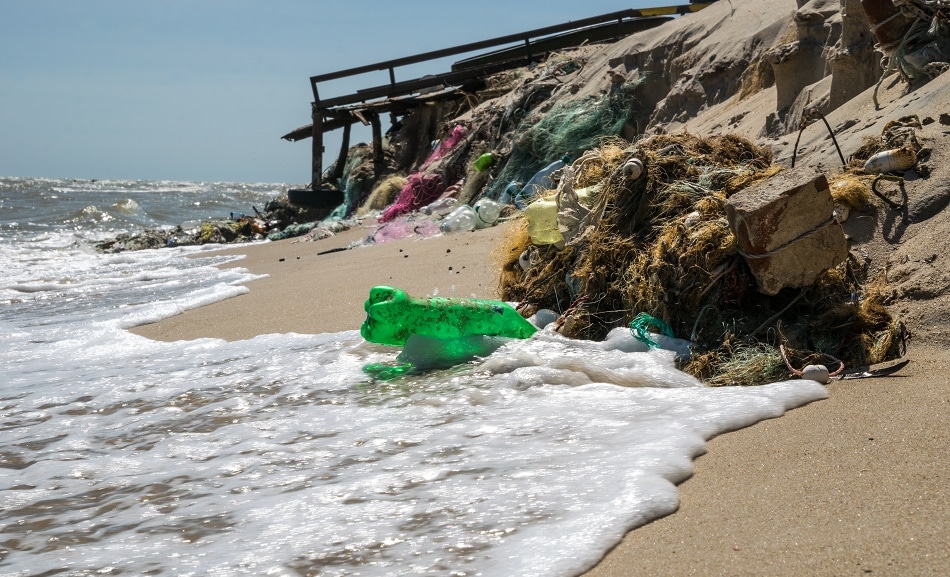
Image credit: Konoplytska / Shutterstock.com
It is well documented that Californians stand up to be counted when it comes to combatting the forces of potential environmental destruction. They were the first state, in 2014, to impose a legal statewide ban on single-use plastics at large retail stores, with Hawaii and New York following suit.
Furthermore, in May this year the state initially passed a draft of California Circular Economy and Plastic Pollution Reduction Act which shifts focus from the consumer to the producer in terms of responsibility ensuring products entering the market using materials that are only absolutely necessary and can be either recycled or composted.
This week California lawmakers are making further considerations to pass the most radical and all-encompassing laws to help further mitigate against plastic pollution over the next decade. Plastics have been at the ire of Californians for decades, washing up on beaches and recently appearing in the fossil record which is why it comes as no surprise they are leading the way in the fight against plastic pollution. There are three new bills tabled, ahead of Friday’s deadline in the state Capitol in Sacramento, once this date has passed it will determine whether the new laws come into effect or die out for the year. Whilst environmental groups are quick to support the bill, industry groups are opposing it seeing the legislation as being costly and unfairly vague.
The advanced bills include further developments and amendments made to the California Circular Economy and Plastic Pollution Reduction Act passed in May and continue to shift onus away from the consumer. Previously the bill had sought to reduce the use of single-use plastics in the packaging and wrapping of consumer products by up to 75% by 2030. Now, there is an emphasis that as well as making materials recyclable or compostable they must also be made up in part of recycled materials.
Californians want to recycle.
Mark Murray, Executive Director, Californians Against Waste
Murray continued, “They want to take responsibility for our waste stream. But the market conditions don’t exist to recycle a lot of these materials. We need manufacturers to step up and take responsibility.”
Yet, industry leaders believe that the bills shift government responsibility and that the consumer should also be held accountable considering plastic pollution. “We oppose the bills primarily because of the massive bureaucracy that they would set on top of our broken recycling system,” said John Hewitt, senior director of state affairs for the Grocery Manufacturers Association, which represents large food, beverage and consumer product companies. “There’s not a shared responsibility.”
The bills set out that manufacturers must step up and indicate commitment towards a 20% recycling rate by 2024, 40% recycling rate by 2028 and not less than 75% by 2030. Thereby, these policies are aiming to lead the charge against plastic pollution at both ends of the production chain. Policy makers believe this will also stand-up to the crisis of waste generated that ends up washing up on Californian beaches and in rivers.
There are many products with packaging, wrapping, and containers that can be recycled, including glass, aluminum can and other plastics but there are also those that can’t. Some of these products that can’t be recycled like Styrofoam food containers and plastic-coated paper are widely used in restaurants and the food industry and in addition to causing local pollution they take up the already over-stressed landfill sites. Thus, the bill would mean that companies using and manufacturing such products would be responsible for taking the back for reuse or finding other methods of manufacturing to ensure they would be compostable.
This means that even though large scale companies such as PepsiCo, Proctor & Gamble, Unilever, et al. are working towards targets, all other manufacturers would have to follow suit as it is about getting everyone on board. This is why some critics of the bill feel hard done by as it may initially lead to a surge in costs for production for smaller holding companies. This has led to some sectors of industry keeping a low-profile and leading opposition by supporting groups such as Californians for the Environment and Recycling, who are funded by Californian based Novolex holdings.
The website makes sweeping claims and argues the new bills “could cause public health issues” and therefore “will make most modern products inaccessible.” Adding “Californians will have to prepare for a future without toothpaste, baby formula, and dog food”.
Supporters of the bills see this kind of information as misleading and scaremongering tactics and believe that whilst industry may oppose these new laws that eventually they will have to conform. There has been a history of this in California as back in 2009 California’s auto-emission laws were made over and industry although initially hostile has moved to comply with new standards. Therefore, the California Circular Economy and Plastic Pollution Reduction could have a similar impact and influence a big enough market that could spur change across the entire industry and country.
Disclaimer: The views expressed here are those of the author expressed in their private capacity and do not necessarily represent the views of AZoM.com Limited T/A AZoNetwork the owner and operator of this website. This disclaimer forms part of the Terms and conditions of use of this website.